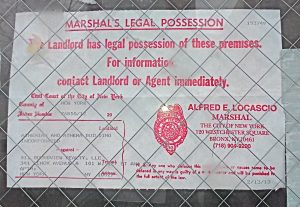
Many of our readers may have been shocked to hear of the recent passing of acclaimed actor Gene Hackman. Not because he was 95 at the time of his death, but due to the circumstances of “Jimmy ‘Popeye’ Doyle’s” death and the status of his family relationships. The two-time Academy Award winner was married for more than thirty years to his second wife, Betsy. A property caretaker found both of them deceased in their home for up to several weeks. Although Betsy was younger than “Little Bill Daggett” by several decades, autopsies conducted on both bodies indicated that Gene survived Betsy by approximately one week. Sadly enough, another conclusion was that Mr. Hackman suffered with Alzheimer’s disease, may not have known that his wife was deceased, and seemingly did not know how to obtain assistance. Notably, Mr. Hackman’s children (all from his first marriage) did not seem to be in contemporaneous contact with him so as to have avoided his passing away alone.
It should be noted that Mr. Hackman’s primary residence was in New Mexico. This discussion will address how such a situation would be handled in New York. When both spouses pass away within a short timeframe of one another, the issue of simultaneous deaths should be considered. In New York, clear and convincing evidence is required that the second to pass away survived the first by one hundred twenty hours (five days) in order for a disposition to the survivor to be effective. Otherwise, the second to die is deemed to have predeceased the first to die and the following person named as a beneficiary will receive the property at issue. Certainly, the results of an autopsy would meet the higher evidentiary standard. An important exception to this statute is if a legal document such as a Will or Trust specifies a different timeframe than one hundred twenty hours. For instance, “Lex Luthor’s” Will required survival by ninety days.
Betsy left her estate to Mr. Hackman and then to charity if he did not survive her. There now seems to be a discrepancy in the date of Betsy’s passing (rumors suggest that she passed away at least one day later) such that there was less time in between their deaths than initially reported. Assuming that Betsy also had a ninety day survival provision in her Will and Mr. Hackman did not meet that threshold, her estate may have been left to charity, not to Mr. Hackman; who would be deemed to have predeceased in this situation, so that Hackman’s children would not stand to inherit (indirectly) from Betsy.
 New York Real Estate Lawyers Blog
New York Real Estate Lawyers Blog











